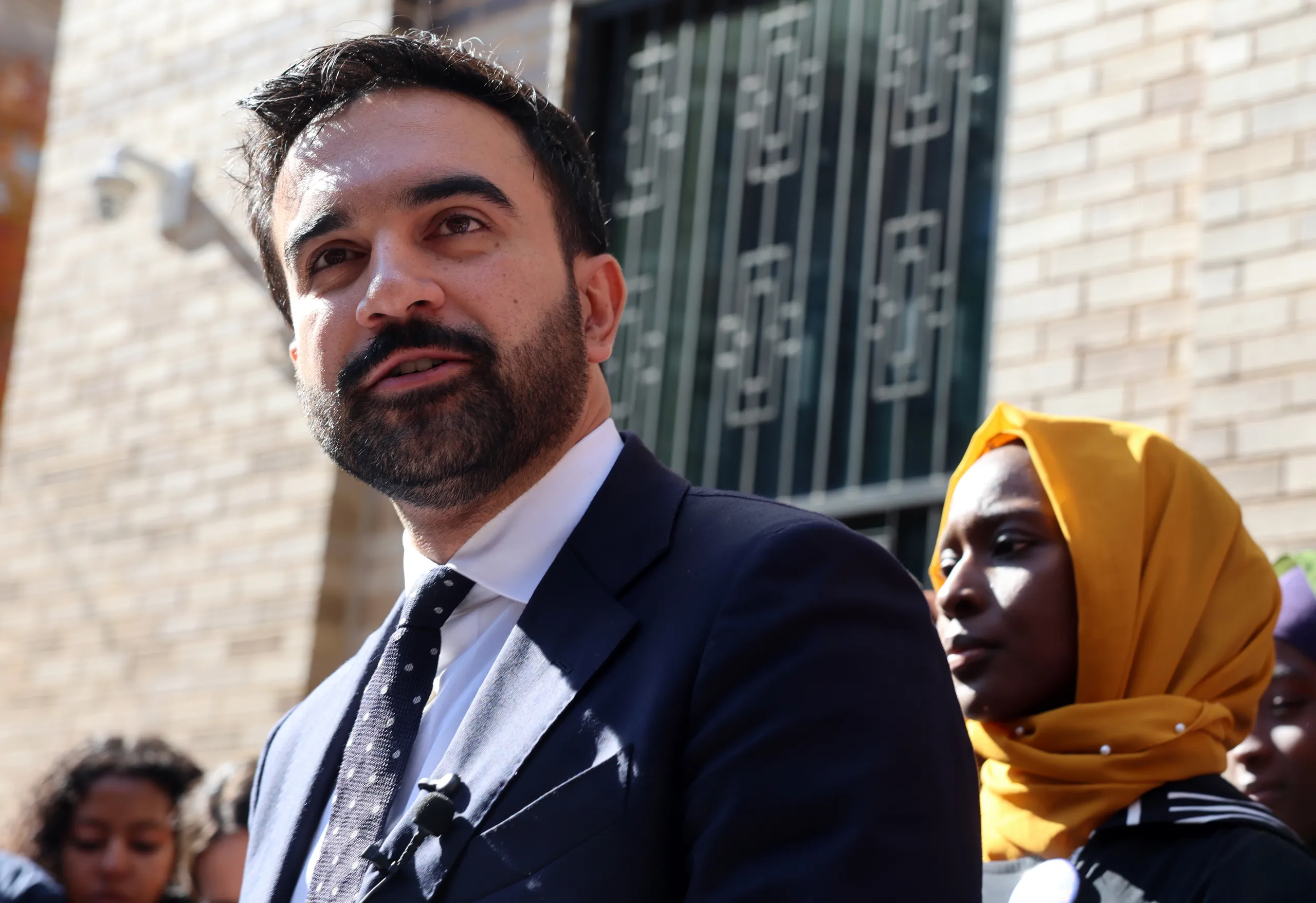It was meant to be a night of celebration — but the tone of Zohran Mamdani’s victory speech has already raised eyebrows and sparked warnings about how he’ll govern once he officially becomes New York City’s next mayor.
The 34-year-old democratic socialist, who narrowly defeated former Gov. Andrew Cuomo in Tuesday’s election, delivered what one political strategist described as “an angry, bitter” address that felt less like a unifying moment and more like a declaration of ideological war.
Speaking to thousands of cheering supporters inside the Brooklyn Paramount Theater, Mamdani took aim at both President Donald Trump and Cuomo, while vowing to turn New York into a model of progressive transformation.
But rather than inspiring confidence, analysts say the speech exposed the challenges and contradictions of his upcoming term.
A Narrow Win, and a Divided City
Mamdani’s win — 50.4% to Cuomo’s 41.6% — was far closer than many expected. Pre-election polls had shown him leading by more than 20 points.
Instead, the final results revealed a city split between enthusiasm for Mamdani’s socialist promises and deep skepticism about how those promises can actually work.
Political consultant Adam Weiss told the Daily Caller News Foundation that the tone of Mamdani’s speech was “a huge red flag.”
“Last night was an angry Mamdani, was a bitter Mamdani. He wasn’t magnanimous,” Weiss said. “He was calling Trump all sorts of names. I don’t know why he’s going off on Trump — the sitting president of the United States. Be magnanimous. Say, ‘We’d love to work together.’”
Instead, Mamdani doubled down.
“If anyone can show a nation betrayed by Donald Trump how to defeat him, it is the city that gave rise to him,” the new mayor declared, to thunderous applause.
“Let Tonight Be the Final Time I Utter His Name”
The newly elected mayor didn’t spare Cuomo either.
After acknowledging his rival briefly, Mamdani delivered a cold farewell that some described as unnecessarily harsh:
“I wish Andrew Cuomo only the best in private life. But let tonight be the final time I utter his name.”
Weiss said that moment revealed a lack of political grace.
“It’s not the way you treat people in our society — it’s really a bad look,” he said. “If Trump or any Republican had done that, there would be wall-to-wall negative coverage.”
A Movement That Won — But May Not Govern
Veteran Democratic strategist Hank Sheinkopf told reporters that Mamdani’s fiery rhetoric reflects the confidence of a political movement that believes it’s reshaping the city’s identity.
“He doesn’t have to moderate, because he doesn’t have to do anything,” Sheinkopf said. “The issue will be: does he disappoint his constituency if he does moderate his rhetoric?”
That tension — between idealism and practicality — is now Mamdani’s greatest challenge.
His ambitious platform includes free citywide bus service, rent freezes, and even city-run grocery stores — ideas that thrill progressives but face enormous institutional and financial hurdles.
“He doesn’t have the power at the MTA to get free buses, necessarily, because he’s only got four votes on the board,” Sheinkopf explained. “He doesn’t have all the power he thinks he has on the rent stabilization board either. It’s not so simple.”
Still, Sheinkopf credited Mamdani’s political instincts, noting that his campaign successfully tapped into demographic changes across the city.
“What advantaged Mamdani was the changing nature of the city’s population,” he said, pointing to growth in African, Muslim, and Chinese communities.
A Shifting City, and a Shaky Mandate
A Patriot Polling survey conducted just two weeks before Election Day found that 62% of foreign-born New Yorkers supported Mamdani, compared with only 31% of American-born voters.
That divide, experts say, mirrors a broader cultural and economic realignment within the five boroughs — one that Mamdani must navigate carefully if he hopes to unify the city.
Weiss, meanwhile, cautioned that Mamdani’s narrow margin means his mandate is weaker than it appears.
“He doesn’t really have a crazy mandate,” Weiss said. “Eric Adams won in 2021 with nearly 70% of the vote. Mamdani’s starting from a much shakier position.”
Weiss also warned that the Democratic Socialists of America (DSA) — Mamdani’s political home — are excellent at campaigning but historically weak at running governments.
“When it comes to organizing, they’re great,” Weiss admitted. “But when it comes to governing, their ideas stink. You can’t just give away things, tax rich people, and think they’ll sit there and say, ‘Okay, tax me to death.’ They’re going to leave.”
What Comes Next
As Mamdani prepares to take office on January 1, 2026, the excitement of his historic victory — as the city’s first Muslim mayor and a self-described democratic socialist — now collides with the sobering realities of running America’s largest city.
To succeed, analysts say, he must temper his rhetoric, build coalitions, and convince skeptics that his progressive vision can coexist with New York’s capitalist foundations.
If he can’t, New York could become the stage for the first major test of whether socialism can actually govern — not just inspire.
And as one strategist put it, the entire nation will be watching.
“He’s not just the mayor of New York City anymore,” Sheinkopf said. “He’s the face of an experiment that could define the Democratic Party’s future — or expose its limits.”

James Jenkins is a celebrated Pulitzer Prize-winning author whose work has reshaped the way readers think about social justice and human rights in America. Raised in Atlanta, Georgia, James grew up in a community that instilled in him both resilience and a strong sense of responsibility toward others. After studying political science and creative writing at Howard University, he worked as a journalist covering civil rights issues before dedicating himself fully to fiction. His novels are known for their sharp, empathetic portraits of marginalized communities and for weaving personal stories with broader political realities. Jenkins’s breakout novel, Shadows of Freedom, won national acclaim for its unflinching look at systemic inequality, while his more recent works explore themes of identity, resilience, and the fight for dignity in the face of oppression. Beyond his novels, James is an active public speaker, lecturing at universities and participating in nonprofit initiatives that support literacy and community empowerment. He believes that storytelling is a way to preserve history and inspire change. When not writing, James enjoys jazz music, mentoring young writers, and traveling with his family to explore cultures and stories around the world.









